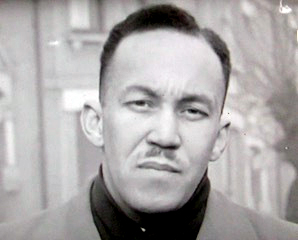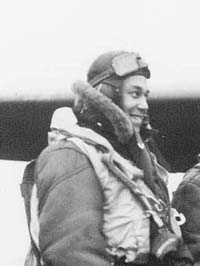December 19th: Today's Feature - William Strachan, Civil Rights Activist and Pilot
- webbworks333
- Dec 19, 2025
- 3 min read
December
William Arthur Watkin Strachan (16 April 1921 – 26 April 1998) was a British communist, civil rights activist, and pilot. He is most noted for his achievements as a bomber pilot with the Royal Air Force (RAF) during the Second World War, and for his reputation as a highly influential figure within Britain's black communities.
As a teenager in Jamaica at the outbreak of the Second World War, Strachan sold all his possessions and travelled alone to Britain to join the RAF. He survived 33 bombing operations against Nazi Germany during a time when the average life expectancy for an RAF crew was seven operations.
He survived numerous life-threatening situations including being shot by the Nazis, a training crash, the Nazi bombing of the hotel he was staying at during his honeymoon, and a near mid-air collision with Lincoln Cathedral.
Rising to the rank of flight lieutenant, an extremely rare achievement for a Black person in Britain during the 1940s, he was charged with investigating incidents of racism on RAF bases throughout Britain, boosting the morale of many Caribbean men in the British military.
Funding his own way to Britain Billy arrived in March 1940. After twelve weeks basic training, in 1941 he joined a squadron of Wellington bombers as a wireless operator/air gunner.
The squadron Billy was part of was one of many that would make nightly raids over heavily defended German cities.
After surviving 30 operations Billy would have been entitled to taking a job on the ground but decided instead to retrain as a pilot. After only 7 hours of training, he was good enough to fly solo.
In 1942 Billy Strachan became a bomber pilot with 156 Squadron, a unit of the élite Pathfinder Force, he would go on to gain two promotions, first to become Flying Officer and then Flight Lieutenant. After his fifteenth flight as a bomber pilot however Billy realised that his nerves had gone after he had completely missed the area, he was due to bomb.
As part of Bomber Command Billy’s chances of survival and the stress level they the crews operated under were extreme, 51% of aircrew were killed on operations, 12% were killed or wounded in non-operational accidents and 13% became prisoners of war or evaders. Only 24% survived the war unscathed. By the end of the war, Billy was an RAF liaison officer working to investigate racial incidents on RAF bases.
In describing the racism he experienced while in the RAF, Billy stated “It was there, all right. But my own experience, together with that of most of my colleagues, showed that whenever one [black person] arrived anywhere, he was always welcomed and treated well. Two, they coped with. It was when three or more came that racism really got sharp. When you arrived anywhere as a black man you were treated like a teddy bear. You were loved and fêted. I know that some of us fared badly. But I had no problems in that respect.”
After the war Billy would return to Jamaica before deciding to come back to Britain and study law as a way of fighting against racism and helping support the struggles for independence across the Caribbean. At this time a close friend, Dr David Lewis, introduced him to Marxism and Billy became a communist.
Billy would become a senior clerk to magistrate’s courts across London and would author several definitive legal guides on subjects from drink driving to adoption. As part of the Communist Party of Great Britain Billy became a leader on the party’s Caribbean advisory committee and with others would go on to found the Movement for Colonial Freedom. Billy’s home with his wife Joyce became a centre for political activity and in 1952 he launched the first left-wing newspapers for Caribbean people living in Britain.
Towards the end of his life Billy founded the Disabled Riders Association becoming vice-president of the organisation.
As the nation’s largest Armed Forces charity, the Royal British Legion (RBL) is dedicated to ensuring that all those who served and sacrificed, and who continue to do so, in defence of our freedoms and way of life, from both Britain and the Commonwealth, are remembered.
Ref:




















